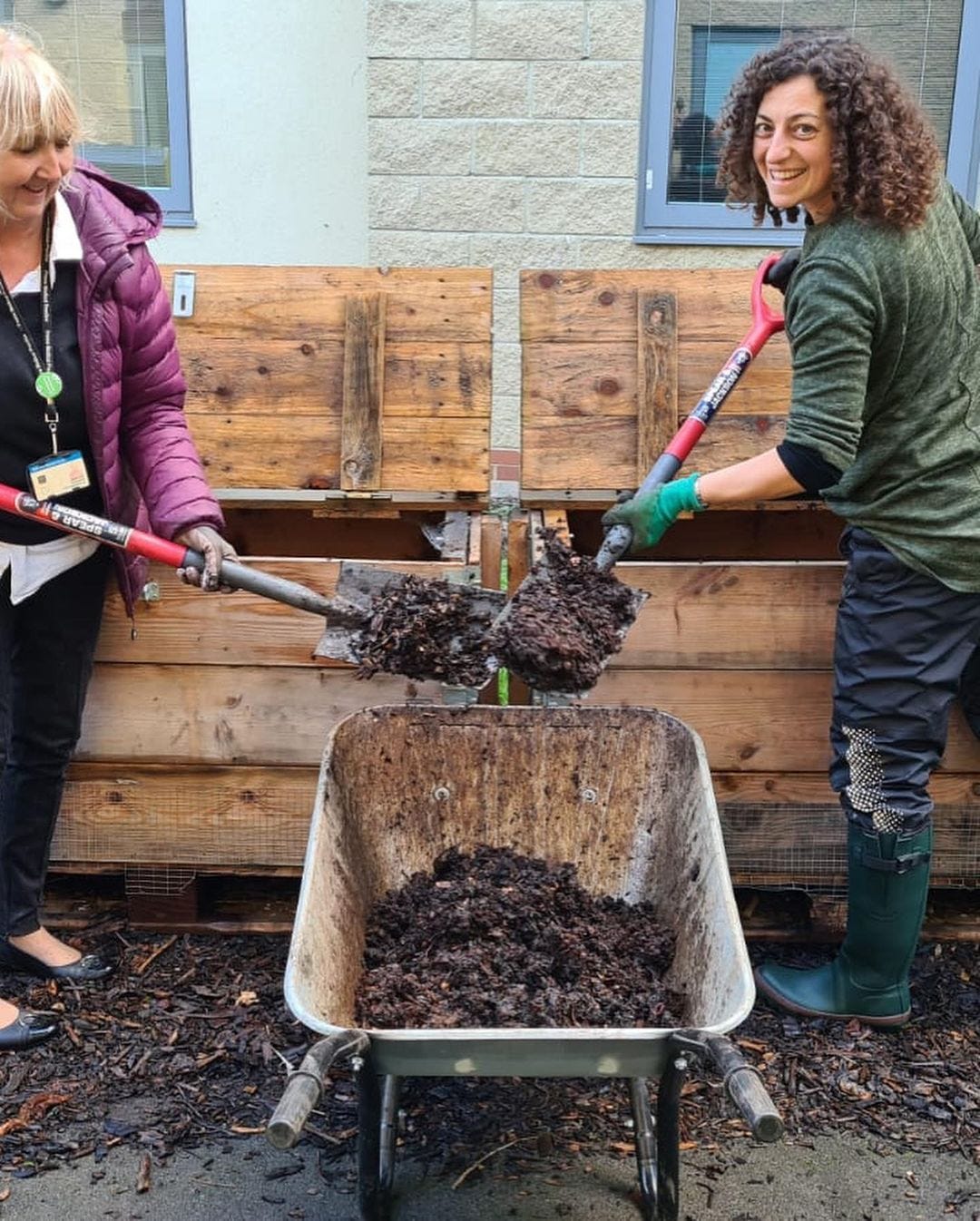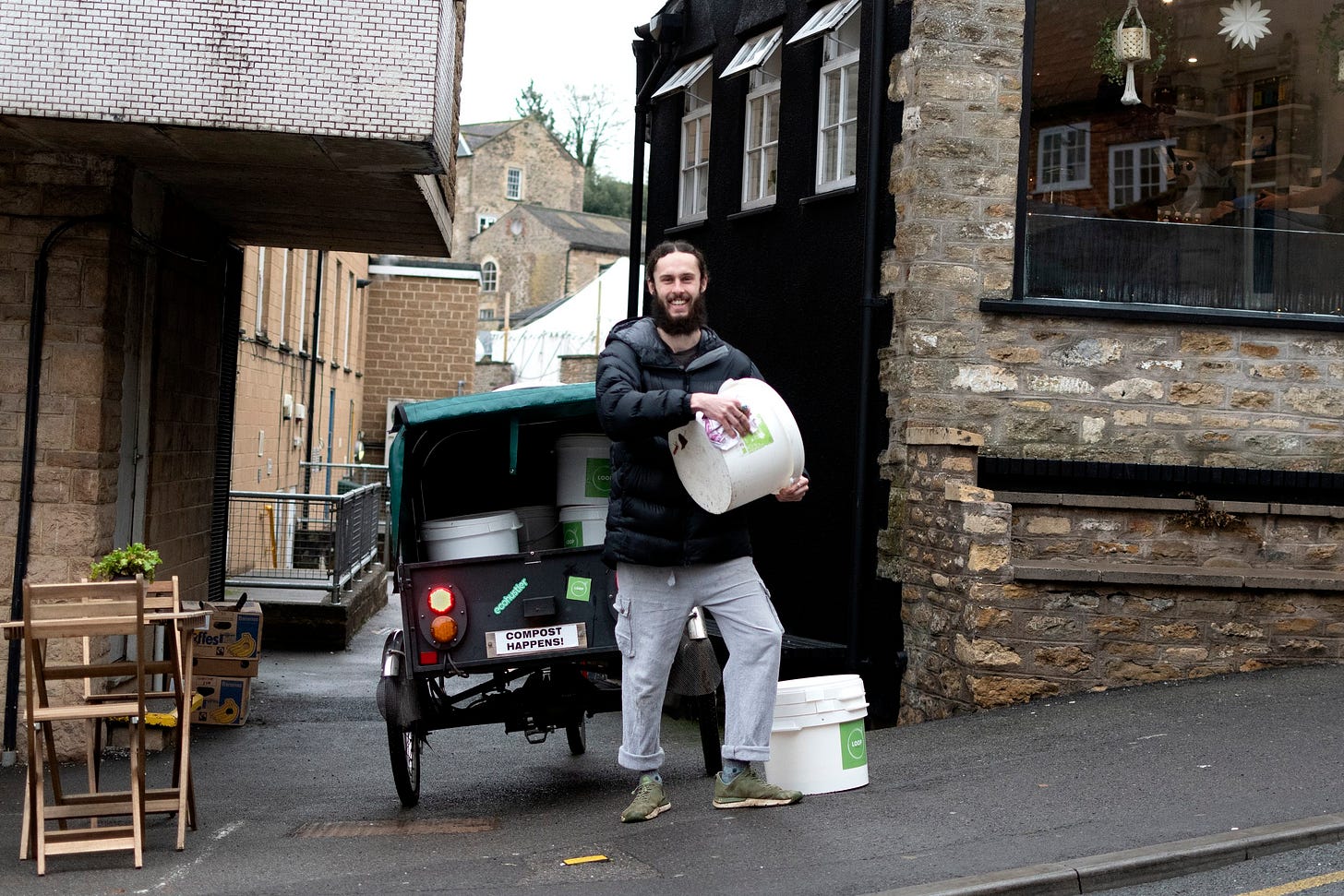Closing the loop in Frome's circular food economy [WFJ #56]
Nutritious food comes not from what you eat, but what you eat eats
Over the last 70 years or so, the amount of nutrients in our food has spiralled into a concerning decline.
The fact that the industrialisation of agriculture has become more and more prevalent over that period is no coincidence – modern farming methods involve things like tillage, synthetic fertilisers, and crops bred to grow larger and faster.
More to the point, such practices are wearing out the land. Given that 95% of our food is either directly or indirectly from the soil, we’re doing a pretty poor job of looking after it – soils have fewer and fewer nutrients left to give, and as a result an eventual public health catastrophe, where people aren’t getting enough nutrition to sustain themselves, is not unthinkable.
“Without healthy, abundant soil, you don't have good food,” Ben Still tells The WFJ. “That idea is one of the things that makes me love this project.”
This project is Loop:Frome, an organisation Ben co-founded with seven other Frome residents such as director Peter MacFadyen. Through the power of locally derived compost, Loop:Frome wants to help local growers re-enliven their allotment spaces, gardens, and produce better food.
How does Loop do it? As Ben points out, by using the remains of food itself. “Peter MacFadyen went to Edventure with this idea about how we can create a system where, rather than food waste leaving town and going to landfill and incineration, turn that into a valuable resource for Frome.” Liking the idea, Edventure – Frome’s school for community entrepreneurs – developed it into a start-up course, before Loop gained support from Frome Town Council and manifested into an independent entity with an HQ at Victoria Park.
At the moment, nine food businesses in Frome – including Lungi Babas, Nook, River House, Hamper, Rye, Lo Rapitenc, and Frama – commission Loop to collect their food waste. Loop turns the waste into compost, which local growers use to grow more nutrient-dense fruit and veg.
One of the key things here is the process. Where compost from garden stores is usually an inert product which at times can do more harm than good when applied to soil, Loop is creating a living composition of billions of microorganisms. Simply put, this requires a three-step process, a Ridan food composting machine, and the best part of a year for the compost to mature. “You could absolutely take it after two weeks,” says Ben, “put it on your land, and it would be good. But in the wider process we’re growing an ecology – it’s a whole different thing.”
Where 10 litres of low-grade compost can cost £2 from the garden store, a Loop 10-litre bucket of ‘living’ compost comes in at £10. ‘Expensive’ it may be, but also pretty comparable in price to supposedly high-grade compost from somewhere like Wilkos.
Besides, the richness from Loop’s compost necessitates a different approach in its use. “You can mix it in with a more generic compost, and that's going to allow life to grow,” Ben says. “Or you can mix it with water and make like a compost soup, and then put that onto your land.”
Creating such a soil-enriching amendment from whatever food waste is offered, be it vegetative material, or tougher (and smellier) things such as meat, bones, and fish is more than achievable, as long as the environment is hot enough to kill unwanted bacteria (the Ridan, apparently, gets to about 80°C). Saying that, Frome, with the bustling cafe culture it has, presents some unique challenges.

“We do end up with a lot of [spent] coffee,” Ben says. “Sometimes it’s too much and we have to temper how quickly we put it in. Just because it's quite acidic, and can create too much heat, which can have a negative effect. Peter Mac was exploring if we can have a whole separate process just for the processing of coffee.”
These kinds of challenges expose a lot about how we usually treat waste. Last week was the national ‘Food Waste Action Week’, which suggests everything in curtailing what food you throw away at home, but much less about how waste can be used to create something else.
Perhaps our whole concept of ‘waste’ is misaligned. Especially within non-local or circular economies, because local economies are generally social economies, operating on a ‘reuse – share – repair – refurbish – remanufacture – recycle’ model, rather than a linear one dependent on ‘taking – making – disposing’.
From a food perspective, perhaps this is best evident with south Indian street food peddlers Lungi Babas and community market garden Field2Fork – Loop takes food waste from Lungis and composts it, which Field2Fork uses to grow more veg for Lungis to process into more food.
“Soil itself is a circular economy, in a sense that the microorganisms and bacteria are all interacting and exchanging energy, and that creates the life and the buzz in the soil,” Ben says. “We're trying to replicate something into a modern economic environment that’s as old as time. Soil is the foundation of our culture – even the word ‘human’ comes from the word ‘humus’, which means ‘soil’”.
Despite the etymological connection, our relationship with soil is waning. When services in Somerset collect the annual total of 46,000 tonnes of food waste off local kerbsides for instance, it’s often destined for an anaerobic digester facility, where it’s turned into biogas and farmland fertiliser. But since almost half of all food waste is disposed in black refuse bins – rather than the brown caddies – and can’t be separated, the scheme is operating at half of its full potential for returning nutrients back into the land.
Perhaps, then, something like Loop is what communities need to help close the circuit – whether imaginary or played out – not just between one product and another, but between individuals, ideas, and other communities.
“One of the ways I try to look at it is there's no such thing as waste,” Ben says. “There's just misplaced resource. And I think as an organisation we've proven that, in that it's literally just food scraps businesses are throwing away. We're taking that, putting it through an amazing process, and getting something incredibly valuable out of it.”







Interesting stuff but I have a question: what affect( if any) does the composting process have on the possible myriad of agri-chemicals (pesticides and fertilisers) contained in the food source you may use to make the compost? Does it follow that only if you start with organic foord waste will you be able to produce organic compost?